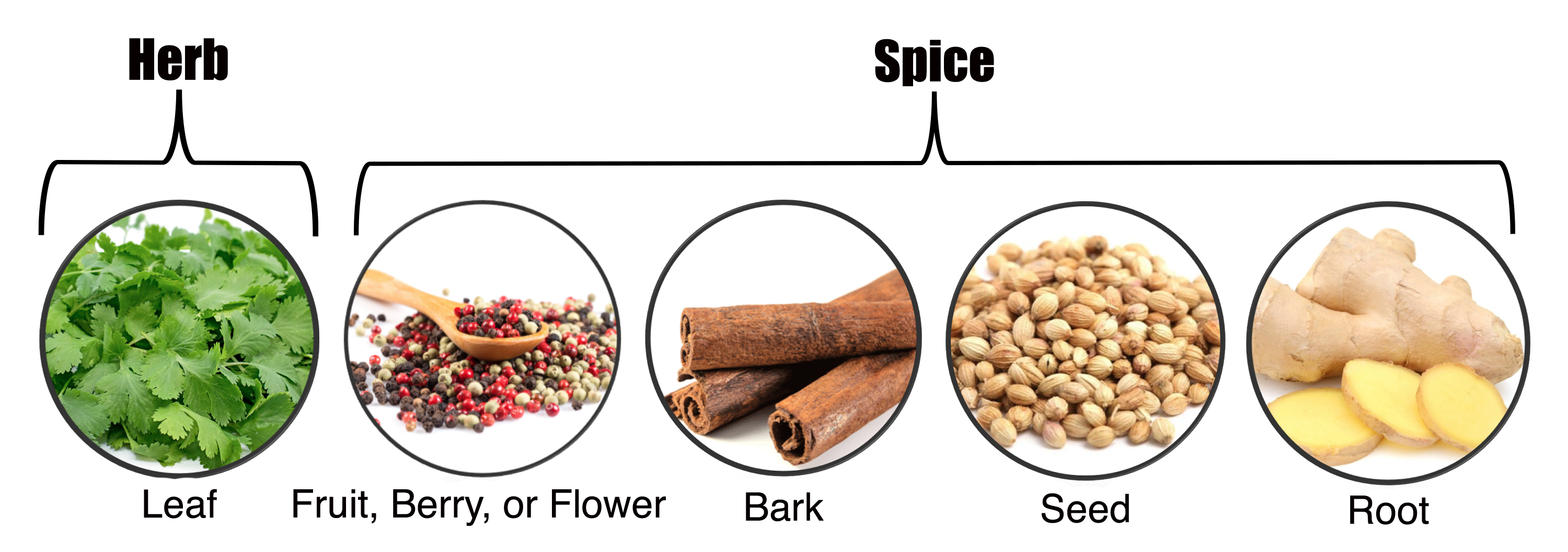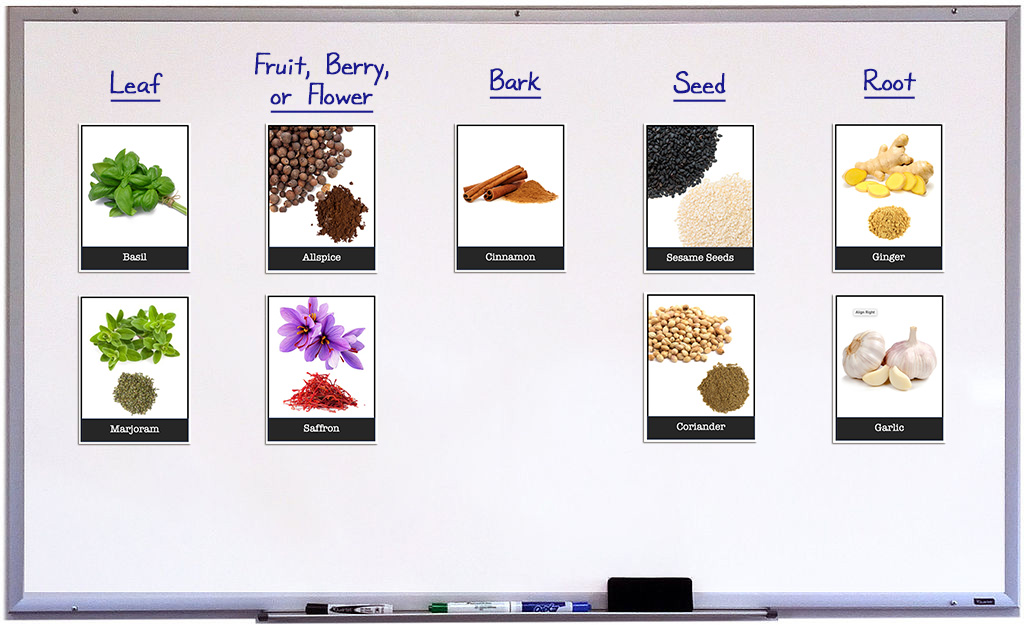Herbs and Spices of the World
In this lesson students will recognize the difference between a spice and herb, learn how herbs and spices are grown on farms around the world, and participate in a culinary challenge to season popcorn for various cultural cuisines.

Background
Lesson Activities
Recommended Companion Resources
Credits
Author
Andrea Gardner | Florida Agriculture in the Classroom and National Center for Agricultural Literacy (NCAL)
Acknowledgements
The original Spice it Up lesson was written by Florida Agriculture in the Classroom. The lesson was updated and re-written with permission in 2019 by the National Center for Agricultural Literacy.
Standards
Indiana Content Area Standards
-
Health and Wellness: Standard 2
Students will analyze the influence of family, peers, culture, media, technology, and other factors on health behaviors.
- 12.2.1 Health and Wellness: Analyze how the family influences the health or individuals across the lifespan.
- 12.2.5 Health and Wellness: Analyze how culture supports and challenges health beliefs, practices and behaviors.
-
English Language Arts.Grade 9-10.W.1
Write routinely over a variety of time frames for a range of tasks, purposes, and audiences; apply reading standards to support analysis, reflection, and research by drawing evidence from literature and nonfiction texts.
- The Research Process: Finding, Assessing, Synthesizing, and Reporting Information.9-10.W.5: Conduct short as well as more sustained research assignments and tasks to build knowledge about the research process and the topic under study. a. b. c. d. e. f. Formulate an inquiry question, and refine and narrow the focus as research evolves. Gather relevant information from multiple authoritative sources, using advanced searches effectively, and annotate sources. Assess the usefulness of each source in answering the research question. Synthesize and integrate information into the text selectively to maintain the flow of ideas. Avoid plagiarism and over reliance on any one source and follow a standard format (e.g.,MLA, APA) for citation. Present information, choosing from a variety of formats
-
English Language Arts.Grade 9-10.SL.1
Listen actively and adjust the use of spoken language (e.g., conventions, style, vocabulary) to communicate effectively with a variety of audiences and for different purposes.
- Discussion and Collaboration.9-10.SL.2.1: Initiate and participate effectively in a range of collaborative discussions on grade-appropriate topics, texts, and issues, building on others ideas and expressing personal ideas clearly and persuasively.
-
English Language Arts.Grade 11-12.W.1
Write routinely over a variety of time frames for a range of tasks, purposes, and audiences; apply reading standards to support analysis, reflection, and research by drawing evidence from literature and nonfiction texts.
- The Research Process: Finding, Assessing, Synthesizing, and Reporting Information.11-12.W.5: b. Gather relevant information from multiple types of authoritative sources, using advanced searches effectively, and annotate sources. c. Assess the strengths and limitations of each source in terms of the task, purpose,and audience. d. Synthesize and integrate information into the text selectively to maintain the flow of ideas. e. Avoid plagiarism and over reliance on any one source and follow a standard format (e.g., MLA, APA) for citation. f. Present information, choosing from a variety of formats.
-
English Language Arts.Grade 11-12.SL.1
Listen actively and adjust the use of spoken language (e.g., conventions, style, vocabulary) to communicate effectively with a variety of audiences and for different purposes.
- Discussion and Collaboration.11-12.SL.2.1: Initiate and engage in a range of collaborative discussions on grade-appropriate topics, texts, and issues, building on others ideas and expressing personal ideas clearly and persuasively.
-
World History: The Rise of Western Civilization and Global Interaction: 1300 CE to 1750 CE: Standard 4
Students explore the rise of Europe and its consequences for worldwide exploration and colonization from 1300 to 1750 CE.
- WH.4.4 The Rise of Western Civilization and Global Interaction: 1300 CE to 1750 CE: Explain the causes of the worldwide voyages of exploration.
- WH.4.5 The Rise of Western Civilization and Global Interaction: Explain consequences of the conquests and colonization as a result of the worldwide voyages of exploration including the transatlantic slave trade, Columbian Exchange, and the effects on native populations in the Americas.


